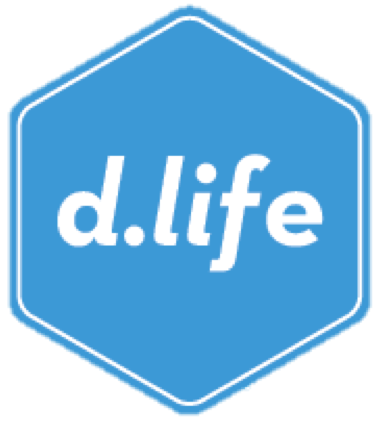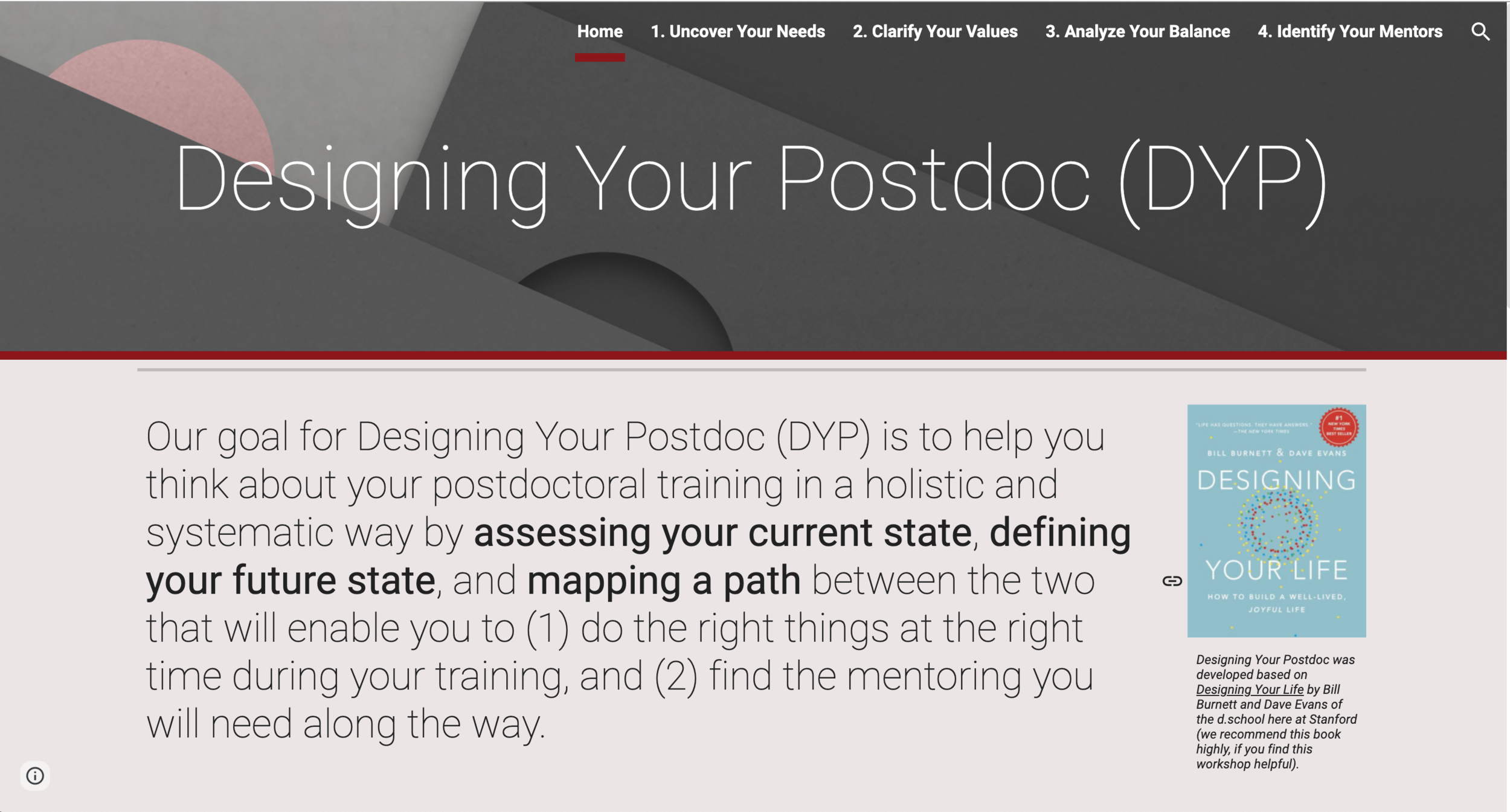Designing Your Post Doc (DYP) : Supporting New Post Doctoral Scholars to Thrive at Stanford and Beyond
In spring 2018, the Office of Postdoctoral Affairs at Stanford launched Designing Your Postdoc (DyP), a 3-hour workshop intended to help new postdoctoral scholars set expectations and identify resources through reflecting on their postdoctoral training goals, exploring their needs, and developing training plans. In the course of the workshop, participants develop three 5-year plans that include milestones, skills-development opportunities, and paths towards their next career step. These plans can be leveraged to support the Individual Development Plan conversation with their faculty mentor. DyP was offered 8 times per year and relied heavily on in-class worksheets and reflection with structured sharing in small, stable table groups (pairs and group share-outs). Feedback from these sessions was largely positive, with participants especially valuing the interaction with other new postdocs, the chance to prototype a potentially anxiety-provoking conversation, and the free food.
In March 2020, we adapted this workshop to the virtual format within one week by making no significant changes other than fillable PDFs. Survey feedback prompted further redesign to make more space for intentional community-building exercises. After multiple iterations, we shifted most of the reflection and worksheet work to an hour of prework by replicating the worksheets in google forms on a prework site, which provided participants with reflection exercises. This change provided an additional workshop hour for breakout group interaction. The additional class time was a huge improvement, but because participants occasionally forgot to send themselves their prework, significant administrative effort was required to resend that information on demand prior to or during each workshop.
To address the administrative burden, we shifted the prework to SmartSheet, which allowed us to create (1) a Dashboard that serves as the prework landing site, (2) a full set of forms to collect responses for each reflection prompt, and (3) a “full responses” sheet that collated participants’ multiple form responses into a master sheet and automatically emailed them a copy of their responses a few hours before the workshop. We also created (4) a professional development crowdsourcing mechanism, so that each cohort of DYP could benefit from and contribute to participants across past and future cohorts.
Current limitations of SmartSheet requires one manual step to trigger populating the full responses sheet, but the total administrative time to get the right materials to participants at the right time was reduced from 1-2 hours to 10-15 minutes.
When we go back to in-person, we are likely to continue to use an iteration of this prework site, so we can continue to design a higher quality of interactions and community-building in our in-person time.
To learn more, contact Robin Sugiura at rsugiura@stanford.edu

